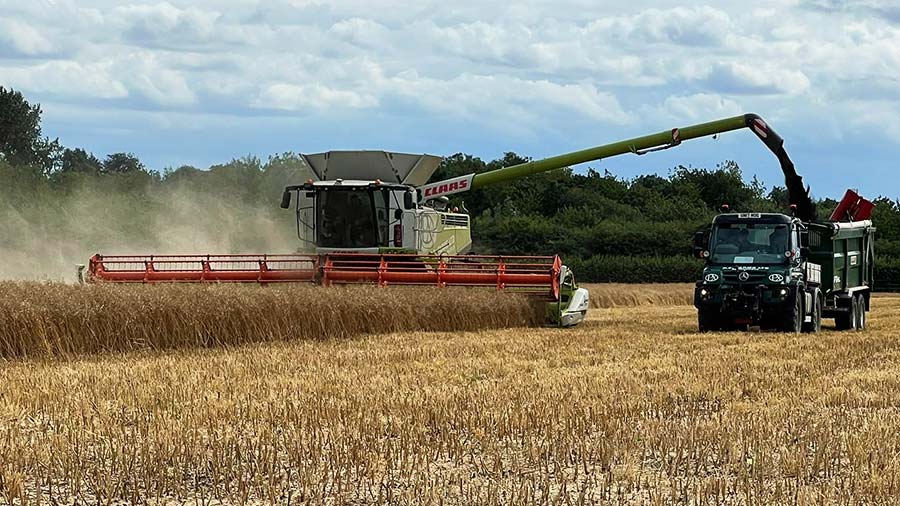Oilseed rape yields down 20% as combine fleet parked-up
 James Peck's 2023 oilseed rape harvest © James Peck
James Peck's 2023 oilseed rape harvest © James Peck Constant rain showers have forced Cambridgeshire grower James Peck to park-up his fleet of four Claas combines as he waits for a dry spell to continue the harvest.
The hiatus follows drought conditions earlier in the growing season which has seen initial oilseed rape yields drop 20% on the farm’s long-term average.
Despite the present frustrations, James says that the harvest team at PX Farms is in good heart and once the weather settles, the team will be ready to roll again, with nearly 5,000ha of area to cut.
See also: Upload your harvest photos
Drought takes toll
Harvest commenced on 5 July with a crop of winter barley, yielding just over 9t/ha, followed by Ambassador oilseed rape which came in at 3.1t/ha.
“Crops have been really affected by the drought which has had a huge impact on crop performance – more than we realise.
“We’re cutting at a moisture content of 9% and oil percentage of 44.3%. However, some crops have been affected by recent thunderstorms, with shelling in the top of the canopy,” he says.
Currently a quarter of the way through oilseed rape harvest, James hopes as the team moves north to Lincolnshire average yields will increase, as crops are looking promising there.
Stung by fert costs
This season has proved challenging not just because of the weather, but financially too. Renting 57% of the farmed area, James has been stung by high fertiliser costs followed by low market prices.
He intends to wait for prices to rise before selling crops.
He has also been let down at the last minute by a power station to which he usually supplies about 10,000t of wheat and barley straw. Missing out on this significant revenue stream is a big blow, he says.
Instead, straw is now being chopped which has increased fuel use by 30% on the combine. However, James notes this will supply vital P and K back to the soil and has produced “beautiful seed-beds”.
The team is making good progress for next season with subsoiling and ploughing under way.

